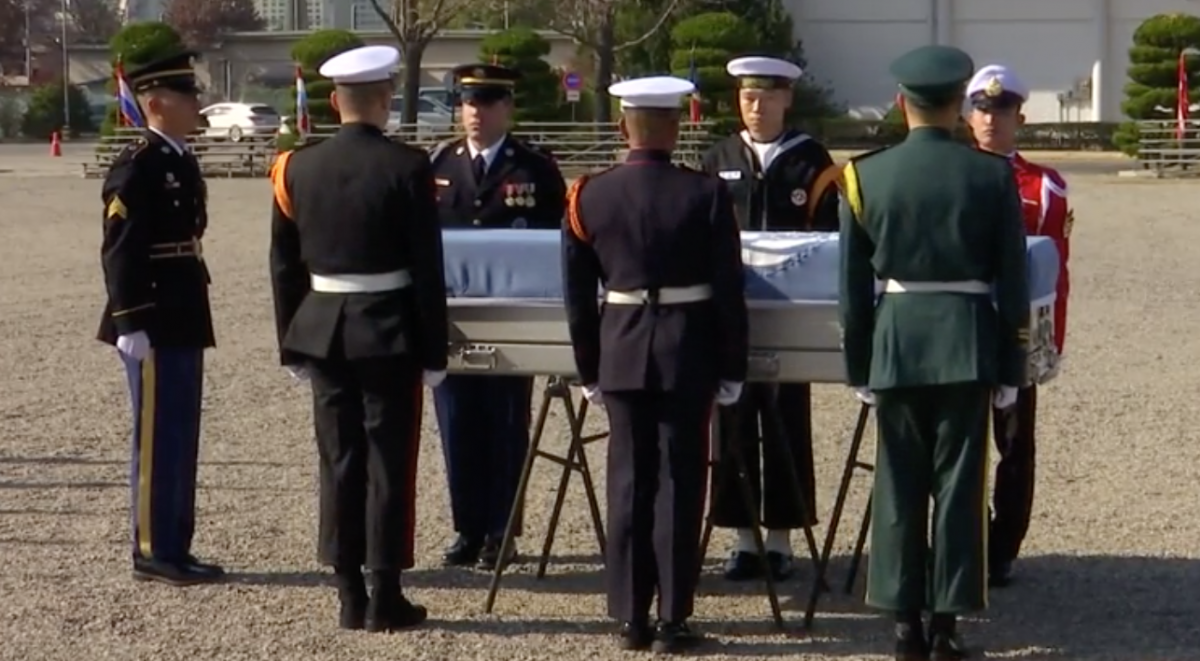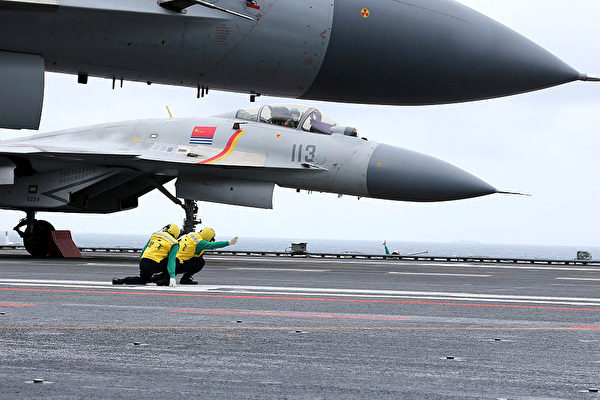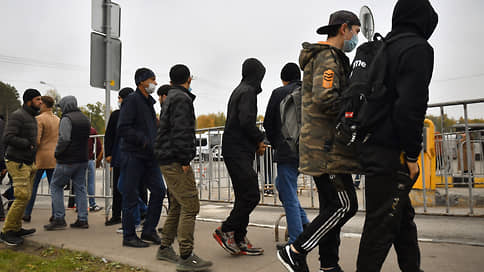Commentary
Chinese “wolf warriors” and their sycophants in China’s state-run media have been crowing for weeks about the strategic defeat suffered by the United States in Afghanistan.
During a telephone call on Aug. 16, Chinese Foreign Minister Wang Yi claimed that the U.S. Secretary of State expressed hope that China would help in “stabilizing Afghanistan.” Here is an agitprop headline from state-run China Daily on Sept. 27 that reinforces the Chinese regime’s goal to replace the United States in world leadership: “US leaving Afghanistan signals accelerating end of its hegemony.” The PLA Daily took its agitprop shot with an article titled, “Why US military interference constantly ends in debacles,” claiming that since the end of World War II, “the US has never stopped invading other countries, fighting ‘proxy wars’ and supporting pro-America regimes.”
Part of the Chinese Communist Party’s (CCP) propaganda offense has been aimed directly at Taiwan by planting seeds of doubt in President Tsai Ing-wen’s inner circle of military and domestic advisers as to whether the United States and its allies would truly come to their aid in the event of a cross-channel kinetic attack by the People’s Liberation Army (PLA). Toward that end, note this headline from China Military Online, “What US retreat from Afghanistan means for Taiwan.” That article claims that Taiwan is “just a card that can be played”—and as easily discarded—by the United States depending on the situation.
The preceding represent the propaganda associated with the messages that the CCP would have the world believe in support of its geopolitical goals to achieve world economic and military dominance: the United States is in decline, the United States cannot be trusted to live up to its agreements, the United States will bail out on allies when it is convenient to do so, etc. But are those the real “lessons learned” from Afghanistan, or are there some far more important lessons that are in the process of being learned?
As the world’s premier constitutional republic, the United States has been historically able to change courses of action and policies that have failed—through vigorous debate and the reaching of consensus, both within the political class and also among the citizenry at large, about strategic goals and objectives and associated required actions. The Civil War abolished the institution of slavery, with the passage of the 13th, 14th, and 15th Amendments, the 1964 Civil Rights Act, and other legislation completing the process of fully integrating black Americans into U.S. society. Long-standing U.S. isolationism was set aside during World War I and World War II to deal with national security threats, with the defeated countries subsequently converted to strong allies through U.S. economic and security investments. South Korea was saved from being overrun by the Chinese military during the Korean War.
But since then, the commitment of the U.S. military to overseas ventures has seemingly gone off the rails for a variety of reasons.

Much has been written about the inept withdrawal of U.S. forces from Afghanistan, and much more will be discerned as Congress interrogates the decision makers who were involved in the debacle. Serious corrective actions are entirely possible, as the root causes are identified and debated. Some of these include the following:
- The failure of the policy/political theory that “building democracy” can be easily achieved in countries with no democratic history or without the laying of the long-term foundations necessary over many decades for it to flourish.
- The failure to address the Sykes-Picot Agreement of 1916 that divided up the Middle East into arbitrary lines on a map without consideration of the ethnicities and tribal organizations of the indigenous populations, which sowed the seeds of inevitable future wars.
- Lack of the political will to use all available means to achieve total victory when U.S. military forces are committed overseas.
- The unchecked influence of interests heavily invested in prolonging endless overseas wars, including politicians, allies, military industrialists, U.S. flag and general officers, and others.
- The demonstrated ineptitude of senior U.S. military leaders with respect to strategic and operational planning and execution.
- The absence of clear-cut mission success and exit criteria that needlessly prolonged the U.S. involvement in Afghanistan, as well as shifting rules of engagement that were politically motivated and not focused on achieving victory on the battlefield.
The CCP sees Afghanistan as an inflection point in world history that demonstrates that the balance of geopolitical forces is shifting in favor of its own long-term strategic goals. It would be happy if the United States were to retreat from treaty obligations, the defense of human rights around the world, and international conventions and organizations established in the aftermath of World War II. That’s not going to happen.
If anything, the last year and a half has red-pilled Americans and many other people around the world as to China’s long-term intentions and the aggressive means being used by the CCP in pursuit of those objectives. The CCP’s aggressive tactics include the following:
- The lying and obfuscation about the origins of and medical forensic information associated with the CCP virus, commonly known as the novel coronavirus that causes COVID-19.
- The hoarding of medical supplies during the “pandemic” and selling of those supplies to countries in need.
- The ongoing Uyghur genocide in East Turkestan (Xinjiang).
- The continuing persecution of Falun Gong adherents.
- The ongoing PLA intimidation of China’s neighbors such as Taiwan, Japan, the Philippines, and others.
- The emergence of belligerent “wolf warriors” in the Chinese diplomatic corps.
- The continued use of debt trap diplomacy in advancing Chinese economic, political, and military goals among 42 nations via Xi Jinping’s Belt and Road Initiative (BRI, as known as “One Belt, One Road”).
In light of the above CCP aggression, does the “rest of the world” wish to see the United States replaced as the world leader by communist China? Recent actions would indicate otherwise. As the old idiom goes, “necessity is the mother of invention.”
The aforementioned items have driven neighboring nations into each other’s arms. The following are a few examples:
- A Quadrilateral Security Dialogue (the “Quad”) has been formed by the United States, Australia, India, and Japan to improve “security and economic ties as tensions with China rise,” according to the Council on Foreign Relations.
- Japan and Vietnam have improved their defense cooperation by signing a new agreement that facilitates the transfer of Japanese defense equipment and technology to Vietnam.
- Taiwan and Japan held security talks for the first time on Aug. 27.
- Japan is increasing defense spending beyond its long-standing cap of 1 percent of GDP, and others in the region believe that Japan will begin playing a wider role in regional defense and security matters.
- The European Parliament has recommended that the European Union adopt a new strategy to defend democratic values against ongoing Chinese aggression.
- Australia, the United Kingdom, and the United States entered into “an enhanced trilateral security partnership known as AUKUS,” according to the BBC, which is aimed at deterring Chinese aggression in the Indo-Pacific region.
- The British, French, and German navies have deployed ships to the South China Sea and Taiwan Strait in recent months for freedom of navigation operations and as a deterrent to PLA-Navy aggression in the region.

But what has the United States itself learned in the wake of Afghanistan, and how might the chaotic withdrawal from Kabul serve to reset U.S. foreign and national security policies, especially in the Indo-Pacific in response to continued Chinese aggression?
Republican senators (and others) are pushing the Biden administration for more forceful actions in responding to Chinese statements in the aftermath of the evacuation. They also seek accountability for the disorganized withdrawal and the poor decision making that was involved. Will this pressure result in a change in U.S. policy relating to the commitment and withdrawal of U.S. military forces overseas? The door could finally be opening for achieving consensus on a policy that involves the following key points:
- Ensure that there are clearly defined mission success and exit criteria before committing U.S. combat power overseas. Ensure the top-level criteria are publicly debated and endorsed in Congress, and understood by the American people and the forces who are committed to battle.
- Hold military leaders personally responsible for the operational planning and execution needed to achieve those criteria and associated objectives. Give those leaders the means and the flexibility to achieve the criteria and objectives.
- Delegate the setting of tactical rules of engagement to the lowest possible command level (not to anyone out of theater).
- When combat forces are committed overseas, use all means necessary to achieve total victory in the shortest time and with the least U.S. and allied casualties. All other considerations are secondary, including “bad press” (the Achilles heel of the current U.S. political class).
- Broadcast the new policy as a deterrent against potential adversaries around the world.
- Act decisively to execute the above policy when U.S. interests are threatened abroad, as well as in support of allies, alliances, and signed treaties.
Then, let the chips fall where they may, including in the South China Sea. In naval parlance, the new policy would be a badly needed “shot across the bow”—and decidedly NOT the U.S. lesson learned and corrective action from the Afghanistan disaster that the CCP is seeking.
Views expressed in this article are the opinions of the author and do not necessarily reflect the views of The Epoch Times.

Follow
Stu Cvrk retired as a captain after serving 30 years in the U.S. Navy i n a variety of active and reserve capacities, with considerable operational experience in the Middle East and the Western Pacific. Through education and experience as an oceanographer and systems analyst, Cvrk is a graduate of the U.S. Naval Academy, where he received a classical liberal education that serves as the key foundation for his political commentary.
Note: This article have been indexed to our site. We do not claim legitimacy, ownership or copyright of any of the content above. To see the article at original source Click Here













